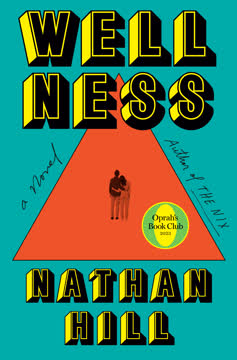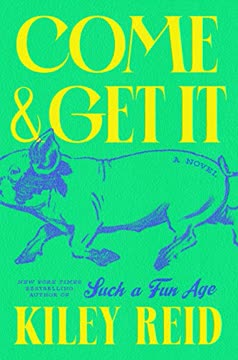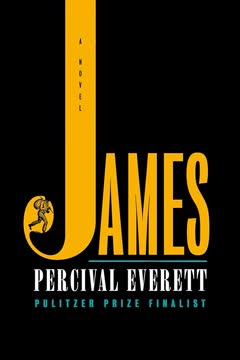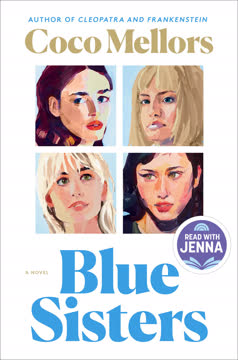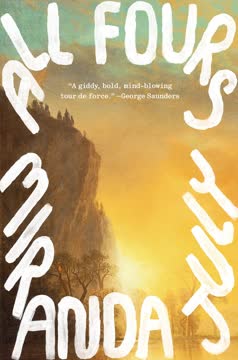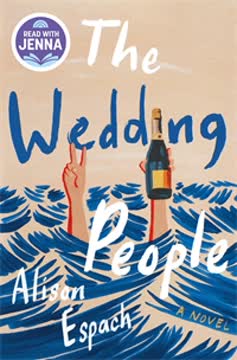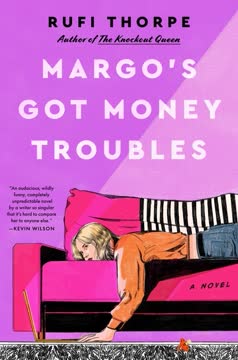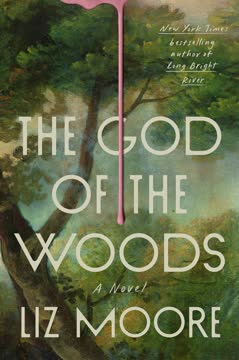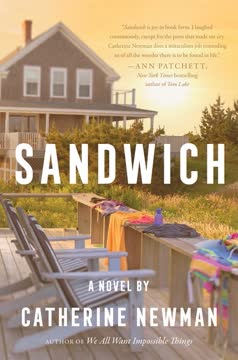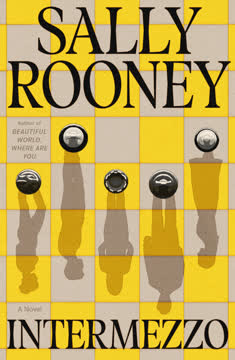Plot Summary
Across the Alley, Watching
In 1993 Chicago, Jack and Elizabeth live in adjacent buildings, each watching the other through their windows, both longing for connection but paralyzed by self-doubt. Jack, a shy, artistic transplant from Kansas, is captivated by Elizabeth's worldliness and intellect. Elizabeth, a restless overachiever from a wealthy, dysfunctional family, is drawn to Jack's authenticity and passion. Their mutual observation is both a comfort and a torment, as each imagines the other as the answer to their own sense of incompleteness. The city's cold winter mirrors their isolation, but also the hope that something new might begin if only one of them dares to reach out.
Come With, Begin Again
On a snowy night, Jack and Elizabeth finally meet at a bar, their connection immediate and electric. Jack's simple, unfinished invitation—"Come with"—becomes the mantra of their relationship, symbolizing openness to adventure and the unknown. They spend the night talking, sharing their histories, wounds, and dreams, discovering a rare ease in each other's company. Both are orphans by choice, having fled families that failed to nurture them. Their love is a leap of faith, a mutual promise to build a life together that is more honest and joyful than the ones they left behind.
Building a Forever Home
Decades later, Jack and Elizabeth are married with a son, Toby, and are building their "forever home" in the affluent suburb of Park Shore. The process exposes the fault lines in their marriage: Jack wants comfort and authenticity, Elizabeth craves aspiration and transformation. Their new home becomes a battleground for their competing visions of happiness, reflecting deeper questions about whether to accept life as it is or strive for something better. The project is complicated by financial risk, community resistance, and the specter of divorce, as both wonder if their union can survive the pressures of midlife.
The U-Shaped Curve
Elizabeth, now in her forties, is haunted by the "U-shaped curve" of happiness—high in youth, low in midlife, rising again in old age. She feels restless, dissatisfied, and wonders if her marriage is the problem or if this is simply the human condition. Jack, sensing her discontent, tries to fix things through grand gestures and self-improvement schemes, but only widens the gap between them. Both are caught between nostalgia for their passionate beginnings and anxiety about the future, unsure if joy can be recaptured or if contentment is found in acceptance.
Parenting in the Age of Anxiety
Elizabeth's perfectionism is channeled into parenting Toby, a sensitive, anxious boy who struggles to fit in at his new school. She obsesses over research, determined to prevent him from inheriting her own wounds or Jack's emotional distance. But her efforts often backfire, creating more stress and conflict. The family's move to the suburbs, intended as a fresh start, only intensifies their sense of alienation. Elizabeth's friendship with Brandie, a local "wellness" mom, offers both support and judgment, as the pressures of modern parenting threaten to overwhelm her.
The System and the Self
Jack, feeling inadequate and invisible, turns to "The System," a data-driven wellness app that promises to optimize his body, marriage, and happiness. He tracks every metric, gamifies romance, and tries to engineer intimacy, but the results are hollow. The more he tries to "fix" himself and his relationship, the more distant Elizabeth becomes. The couple's attempts to improve—through technology, therapy, or home design—reveal the limits of self-help and the persistent mystery of desire and fulfillment.
Placebo and the Power of Story
Elizabeth's work at Wellness, a research lab, centers on the placebo effect—the power of belief and ritual to heal. She discovers that meaning, not molecules, often drives real change. Her most successful interventions are elaborate fictions that give patients hope and agency, even as she questions the ethics of deception. The line between truth and story blurs, both in her work and her marriage, as she wonders if love itself is a kind of placebo—a story we tell ourselves to make life bearable.
The Origin of Us
Both Jack and Elizabeth are shaped by their families' legacies: Jack's rural Kansas upbringing, marked by emotional neglect and tragedy; Elizabeth's privileged but cold New England lineage, haunted by ambition and shame. Their parents' failures echo in their own struggles with intimacy, self-worth, and the fear of repeating the past. The narrative weaves their origin stories, showing how the search for love and belonging is always entangled with the ghosts of those who came before.
New Relationship Energy
Flashbacks to Jack and Elizabeth's early years capture the intoxicating rush of "new relationship energy"—the sense of discovery, exclusivity, and shared language that makes love feel like a private cult. Their bohemian Chicago life is filled with friends, art, and adventure, but as time passes, the circle contracts. Friends move away, have children, or drift apart, leaving the couple to face the slow erosion of novelty and the challenge of sustaining connection in the face of routine and disappointment.
The Unraveling
The birth of Toby brings joy but also exposes Elizabeth's deepest anxieties and the impossibility of perfect parenting. Her efforts to control every variable—diet, behavior, emotion—lead to exhaustion and despair. A public meltdown at the grocery store becomes a turning point, as she realizes the limits of willpower and the necessity of accepting imperfection. The episode also inspires her most lucrative professional insight: that choice itself can be a powerful placebo, transforming suffering into agency.
Failure to Thrive
Jack's early years are marked by illness, neglect, and the sense that he is a burden. His mother's depression and his father's emotional absence leave him with a deep conviction of unworthiness. The family's tragedies—especially the death of his beloved sister, Evelyn, in a prairie fire—become the silent core of his adult life, shaping his art and his relationships. Jack's struggle to forgive himself and his parents is mirrored in his difficulty connecting with Elizabeth and Toby.
The Augustine Legacy
Elizabeth's family history is a saga of American ambition, built on exploitation, swindles, and secrets. The grand Connecticut estate, the Gables, is both a symbol of success and a mausoleum of guilt. Each generation's pursuit of "more" leaves emotional wreckage in its wake. Elizabeth's ambivalence about privilege, her drive to prove herself, and her fear of repeating her parents' mistakes all stem from this legacy, complicating her quest for authenticity and happiness.
The Needy Users
Jack's estranged father, Lawrence, finds solace and community on Facebook, only to be manipulated by algorithms that amplify his fears and grievances. The platform's design rewards outrage and conspiracy, driving a wedge between father and son. Their online battles mirror the larger cultural polarization, as both become trapped in feedback loops of anger and misunderstanding. The story explores how technology exploits our need for certainty and belonging, often at the expense of truth and empathy.
The Placebo Marriage
As their marriage falters, Jack and Elizabeth confront the possibility that their love is a kind of placebo—a comforting fiction that once made them feel safe but now feels empty. Their attempts to rekindle passion or find new adventures (including a foray into non-monogamy) only highlight the gap between fantasy and reality. The question becomes not whether their story is true, but whether it is useful, humane, and loving enough to sustain them through uncertainty.
The Club and the Escape Word
Seeking to revive their marriage, Jack and Elizabeth attend a suburban sex club with another couple, Kate and Kyle. The experience is both liberating and disorienting, forcing them to confront their own needs, fears, and the ways they have failed to communicate. The "escape word" becomes a metaphor for the boundaries we set to protect ourselves, and the episode ultimately exposes the unresolved pain and longing at the heart of their relationship.
The Fire and the Past
Jack returns to Kansas after his father's death, confronting the literal and figurative fires that shaped his childhood. The loss of his sister, the silence of his parents, and the unresolved question of blame all come to the surface. Through conversations with his mother, Jack learns that the past is more ambiguous than he believed, and that forgiveness—of others and of himself—is both necessary and elusive. The prairie, once a symbol of emptiness, becomes a site of reckoning and, finally, release.
Letting Go, Letting Be
As the dream of the "forever home" goes up in flames—literally, in an act of insurance fraud—Jack and Elizabeth are forced to confront the reality of their lives without illusions. Both realize that certainty is an illusion, and that love, if it is to survive, must make room for doubt, change, and imperfection. They choose, tentatively, to stay together, not because they are soulmates, but because they are willing to keep trying, to keep telling a story that is generous and kind.
The Human Soul Wandering
In the end, Jack and Elizabeth return to the beginning: two people, alone together, inventing a world out of longing and imagination. The story of the "human soul out wandering as a mouse" becomes a metaphor for the unknowable depths of the self and the other. Love is not a solution or a certainty, but a practice—a willingness to believe, to forgive, to be present, and to let the story go on, even when the ending is unclear.
Characters
Jack Baker
Jack is a sensitive, introverted photographer from rural Kansas, marked by childhood illness, neglect, and the traumatic loss of his sister. His art is an attempt to make sense of absence and pain, often focusing on the overlooked or the abstract. Jack's longing for love and belonging is both his strength and his vulnerability; he idealizes Elizabeth, seeking in her the acceptance he never received at home. As a husband and father, he struggles with feelings of inadequacy and the fear of repeating his parents' mistakes. Jack's journey is one of learning to accept imperfection—in himself, in others, and in the stories he tells about love.
Elizabeth Augustine
Elizabeth is the brilliant, ambitious daughter of a wealthy but emotionally distant New England family. Her childhood was a series of moves, losses, and the pressure to excel, leaving her both resourceful and deeply insecure. She channels her need for control into her career at Wellness and her parenting of Toby, often to the point of exhaustion. Elizabeth is both skeptical and susceptible to the power of story—she understands the placebo effect intellectually but yearns for a narrative that will make her feel whole. Her arc is one of reckoning with her own limitations, learning to forgive herself, and choosing love not as certainty but as an ongoing act.
Toby Baker
Toby is Jack and Elizabeth's son, a bright but anxious boy who struggles with social integration and emotional regulation. His difficulties at school and at home become a crucible for his parents' fears and hopes, especially Elizabeth's. Toby's love of video games and his unique way of seeing the world reflect both his parents' gifts and their wounds. He is a catalyst for their growth, teaching them—often unwittingly—about acceptance, resilience, and the limits of control.
Benjamin Quince
Benjamin is Jack's old friend and landlord, a former bohemian who becomes a real estate developer. He is both a mentor and a cautionary figure, representing the seductive promise of reinvention and the dangers of self-delusion. Benjamin's journey from anti-establishment artist to capitalist entrepreneur mirrors the gentrification of Chicago and the compromises of adulthood. His schemes, including the ill-fated Shipworks project, force Jack and Elizabeth to confront the gap between aspiration and reality.
Brandie
Brandie is Elizabeth's neighbor in Park Shore, a leader in the local "Community Corps" and a fervent believer in the power of affirmation and vision boards. She offers Elizabeth both friendship and judgment, embodying the pressures and contradictions of modern parenting and wellness culture. Brandie's own marital struggles and eventual betrayal of Elizabeth highlight the limits of positive thinking and the dangers of denial.
Kate
Kate is a younger, polyamorous parent at Toby's school, whose openness about sex and relationships challenges Elizabeth's assumptions about marriage and fulfillment. She is both alluring and unsettling, offering a vision of freedom that is as destabilizing as it is tempting. Kate's presence forces Jack and Elizabeth to confront their own desires and boundaries.
Kyle
Kyle is Kate's husband, a quiet, physically imposing man who practices non-monogamy with a calm detachment. He serves as a foil to Jack, offering insights into the dynamics of need, avoidance, and the search for completion in relationships. Kyle's conversations with Elizabeth reveal the patterns that underlie her marriage and the ways in which we are drawn to partners who reflect our deepest wounds.
Lawrence Baker
Jack's father is a stoic, emotionally distant man from Kansas, whose late-life immersion in Facebook and conspiracy theories becomes both a source of connection and conflict with Jack. Lawrence's journey illustrates the ways in which technology exploits loneliness and fear, and how the search for certainty can lead to isolation and misunderstanding. His death prompts Jack's return home and a reckoning with the past.
Ruth Baker
Jack's mother is a depressive, self-pitying woman whose inability to forgive—herself or others—casts a long shadow over her family. Her relationship with Jack is marked by guilt, manipulation, and the projection of her own wounds. Ruth's refusal to take responsibility for the family's tragedies forces Jack to confront the ambiguity of memory and the necessity of letting go.
Evelyn Baker
Jack's older sister is a gifted artist and free spirit, whose death in a prairie fire becomes the central trauma of Jack's life. Evelyn represents the road not taken, the promise of escape and self-invention. Her memory haunts Jack, shaping his art and his relationships, and her absence is both a wound and a source of inspiration.
Plot Devices
Dual Narrative Structure
The novel weaves together past and present, tracing Jack and Elizabeth's relationship from its hopeful beginnings to its crisis in midlife. Flashbacks to their childhoods and early romance provide context for their current struggles, highlighting the ways in which history repeats and transforms. The structure allows for deep psychological exploration, showing how the stories we inherit and invent shape our choices and identities.
Placebo as Metaphor
The placebo effect is both a literal subject (in Elizabeth's work) and a central metaphor for the novel. The power of story, ritual, and belief to create real change—whether in health, love, or happiness—is explored through multiple plotlines. The question of whether love is a placebo, and whether that matters, animates the characters' search for meaning and connection.
Social Media and Algorithmic Manipulation
The novel uses the rise of Facebook and its algorithms as a lens for examining the ways in which our desires for connection, certainty, and validation are exploited and distorted. The "Needy Users" section, structured as a series of algorithmic processes, dramatizes the feedback loops of outrage, misinformation, and estrangement that define contemporary life.
Foreshadowing and Recurrence
The narrative is rich with recurring images and phrases—windows, fire, "come with," the U-shaped curve, the marshmallow test—that gain new meaning as the story unfolds. Events in the past foreshadow crises in the present, and the characters' attempts to escape or rewrite their histories are repeatedly challenged by the return of old wounds.
Satire and Irony
The novel employs satire to expose the absurdities of wellness culture, self-optimization, suburban aspiration, and the commodification of everything from love to real estate. Irony is used to highlight the gap between intention and outcome, and to question the stories we tell about progress, happiness, and authenticity.
Analysis
Nathan Hill's Wellness is a sweeping, incisive exploration of what it means to try to build a good life in an age of uncertainty, distraction, and self-doubt. Through the intertwined stories of Jack and Elizabeth, the novel interrogates the promises and pitfalls of love, marriage, parenthood, and self-improvement. It asks whether happiness is found in striving or acceptance, whether stories are lies or necessary medicine, and whether connection is possible in a world that constantly pulls us apart. The book is both a satire of contemporary obsessions—wellness, technology, optimization—and a deeply empathetic portrait of two people struggling to forgive themselves and each other. Its central lesson is that certainty is an illusion, and that love, if it is to endure, must make room for doubt, change, and imperfection. In the end, Wellness suggests that the stories we tell—about ourselves, our families, our futures—are not true or false, but useful or harmful, and that the most humane stories are those that allow us to be generous, forgiving, and alive to the mystery of being together.
Last updated:
Review Summary
Wellness receives mostly positive reviews, praised for its insightful exploration of modern relationships, engaging storytelling, and satirical commentary on contemporary society. Readers appreciate Hill's writing style, character development, and ability to tackle complex themes. Some criticize the book's length and occasional tangents, feeling certain sections could have been condensed. Many compare it favorably to Hill's debut novel, The Nix. Overall, reviewers find Wellness to be a thought-provoking and timely examination of love, marriage, and the human condition in the digital age.
Similar Books
Download PDF
Download EPUB
.epub digital book format is ideal for reading ebooks on phones, tablets, and e-readers.
